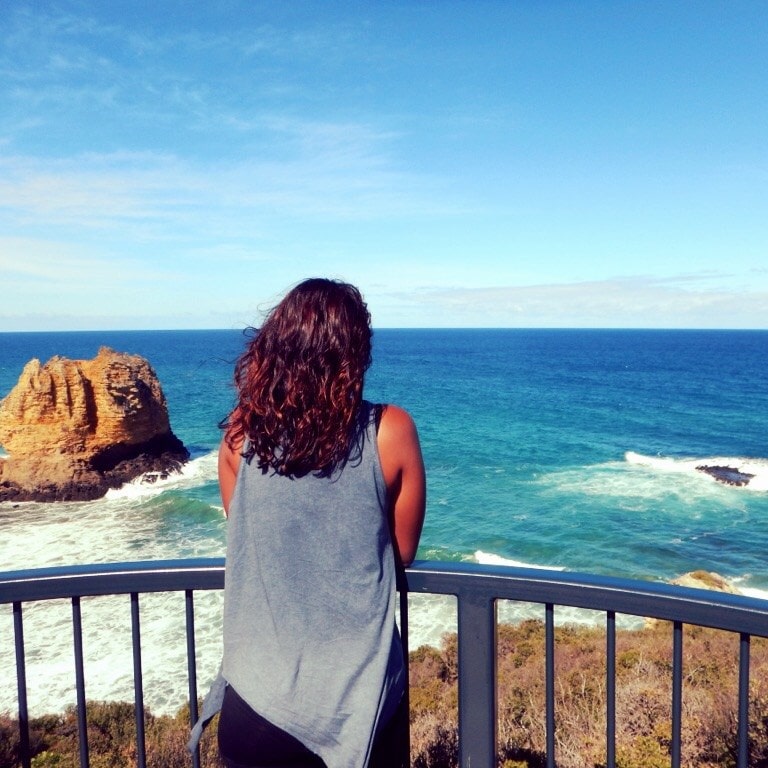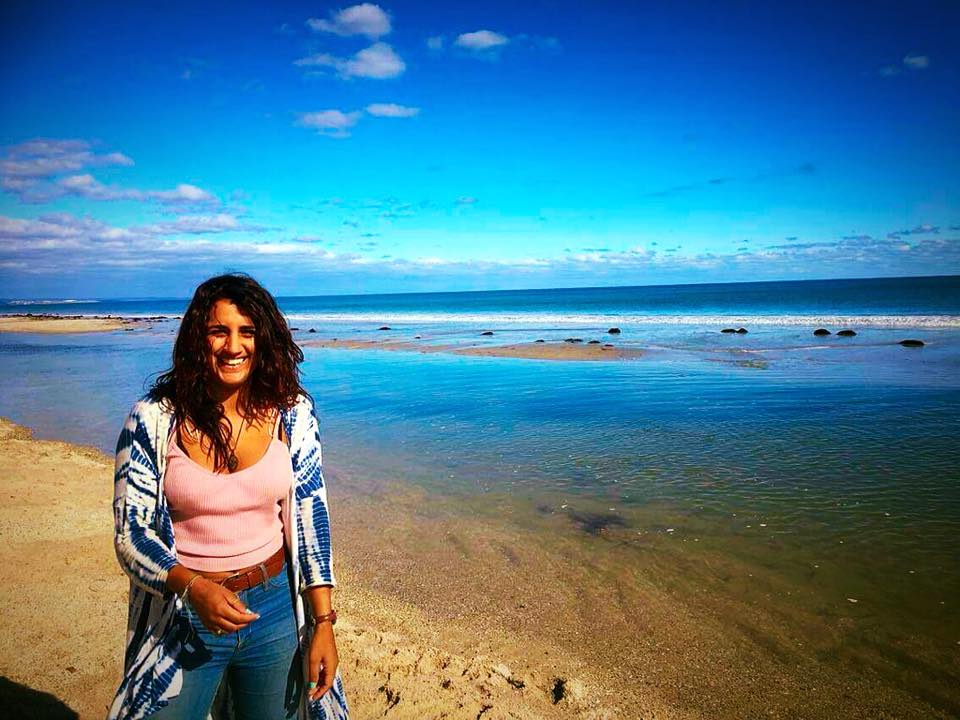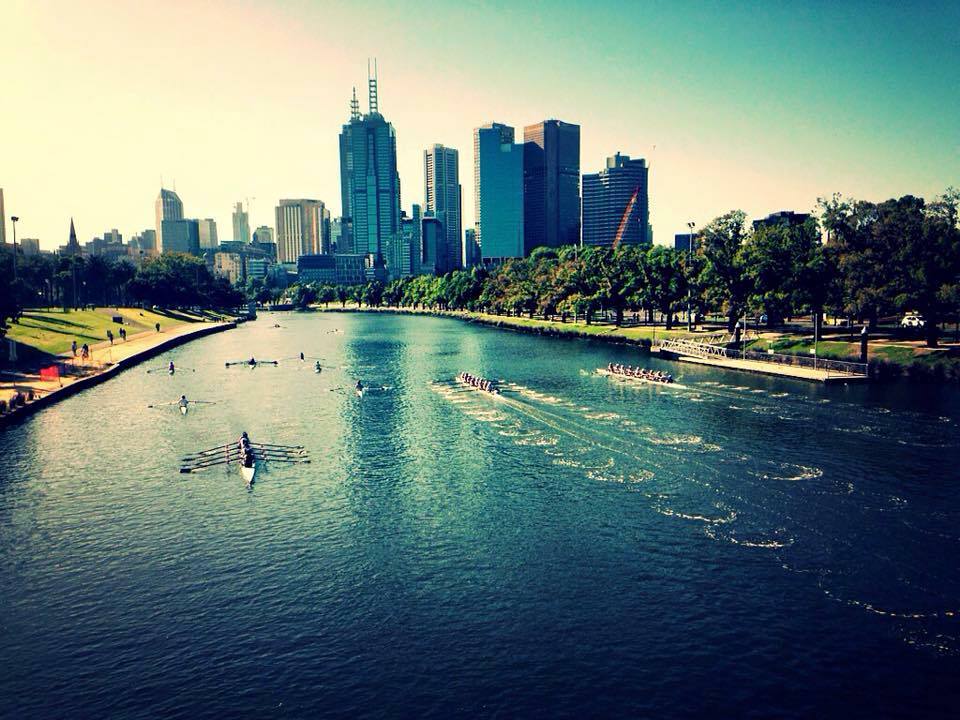 Three months. It doesn’t sound like a long time, but when you’re in a job you hate, trust me, it drags. As the Darwin days came to a close, I started to think seriously about getting my regional work done - it wasn’t something I had planned but after the last few months I knew I really wanted to stay in Australia the full two years. I still had so much left to see and do, I couldn’t abandon this amazing country just yet. So I began looking online for jobs that would count towards my 88 days - originally I was supposed to be joining two friends from home on a mango farm near Darwin but poor crop meant that fell through. After that I started looking at everything from working in outback pubs, livestock farming, fruit picking, au pair work on farms, even working on ranches and cattle stations. There were so many jobs it was hard to know which ones to apply for so I started off by narrowing it down to areas I really wanted to visit - places like Tasmania and Western Australia that I hadn’t yet explored. Then, once I’d applied for all the jobs from those areas, I started to widen my search on Gumtree to areas like Queensland and the Northern Territory. This website was the most helpful when it came to finding work in places that satisfied the criteria needed to get that second year visa.
Three months. It doesn’t sound like a long time, but when you’re in a job you hate, trust me, it drags. As the Darwin days came to a close, I started to think seriously about getting my regional work done - it wasn’t something I had planned but after the last few months I knew I really wanted to stay in Australia the full two years. I still had so much left to see and do, I couldn’t abandon this amazing country just yet. So I began looking online for jobs that would count towards my 88 days - originally I was supposed to be joining two friends from home on a mango farm near Darwin but poor crop meant that fell through. After that I started looking at everything from working in outback pubs, livestock farming, fruit picking, au pair work on farms, even working on ranches and cattle stations. There were so many jobs it was hard to know which ones to apply for so I started off by narrowing it down to areas I really wanted to visit - places like Tasmania and Western Australia that I hadn’t yet explored. Then, once I’d applied for all the jobs from those areas, I started to widen my search on Gumtree to areas like Queensland and the Northern Territory. This website was the most helpful when it came to finding work in places that satisfied the criteria needed to get that second year visa.
It’s a bit of a long process applying for jobs like these unless you have a contact on a farm already - that seems to be the best way to do it, by recommendation. When you’re just desperate to find something and take the first job offered, sometimes you can end up doing something you hate and working for people you can’t stand. I think one of the main problems with taking rural work is that the Australians hiring you know that you will do pretty much anything for the sign off - they know that they can push it and take advantage because you need them more than they need you. I mean, we’re interchangeable and more importantly we’re replaceable. One backpacker can be replaced by 50 eager new ones in a week, so why should they really care how they treat us? Now before someone jumps down my throat, I know not all farming employers are like this and I have several friends who have had a blast doing their farm work, who have loved it so much they spent twice as long there and later returned for more. Many who describe it as their best memory of this country.
But I’ve also heard twice as many stories of people being taken advantage of - in every sense from money and working hours, to sexually. You only have to take one scan down the backpacker Facebook pages to read some of the horrific stories of travellers turning up and being treated like slaves, expected to work insane hours for almost no wages and disgusting living conditions, and I’ve heard way too many stories of girls getting stuck out on a farm in the middle of nowhere with dodgy farmers who tried to touch them or even crawl into their beds in the middle of the night. I’ve heard all sorts since travelling - mainly because thats always the first conversation people want to have in Australia - everyone is looking for tips on how to tackle their farm work or to vent about how awful theirs was. Mine? It was an experience that I definitely wouldn’t want to repeat. I learnt a lot about how much I can put up with when I really want something - because trust me it’s not like me to keep my mouth shut in the face of such treatment. But thanks to good friends there and keeping my eyes on the prize, I made it through and now it feels like it happened a million years ago. It was worth sticking it out to get it done and dusted with three months to spare, but I’m so happy I will never have to go through that again.
If you're looking for farm work, why not check out my top tips for getting that regional work done:
- Talk to as many people as possible - backpackers you meet on the road, on Facebook pages, friends-of-friends, potential employers. Get as much information as possible so you can make informed decisions and get recommendations.
- Don’t ever feel pressured or get yourself into a situation you don’t feel comfortable with - no second year visa is worth putting yourself in danger. You will always be able to find another job if you need it.
- Try and go with friends - it’s less scary than going off all by yourself and it can help make three months go a lot quicker if you're laughing the whole time.
- Throw yourself into outback life - trust me it really does show you a completely different side to Australia and it's an amazing way to experience real Aussie culture instead of just city life and East Coast fun.
- Make sure you have a Telstra SIM, trust me, most of these places won’t get signal with other networks and not being able to keep in contact with friends/family will drive you nuts - plus if you get in a bad situation a Telstra SIM could save your life.
- Always tell family and friends where you are going and what you will be doing - make sure someone in the country and someone back home has your travel details and will raise the alert if you don't get in contact within a certain time. It may sound over cautious but if you're travelling solo and heading off into the outback, you might be glad to have someone checking you made it safely to the other end.
- Try something new - don’t be afraid to try something completely new because it could be the best experience of your life. Cattle farming may not sound like it’s for you but it could be the only time in your life you’ll ever get to try!
- Make sure you’re getting those pay slips from the beginning - none of this “I’ll sort them out before you leave” rubbish.
- Don’t leave the farm if you’re still owed money - it makes it ten times harder to claim it back when you’ve already moved on to another territory. Also - if they keep saying they’ll pay you but you see no sign of cash make sure you put the pressure on or get the authorities involved.
- Try and get a job that comes with food and accommodation included - it makes a huge difference and means that you will save every cent because you have no outgoings.
- Don’t be afraid to leave - I knew a group of guys who had a van and moved between farms every four to six weeks, avoiding all the hassle that came with long-term stays and stopping them from hating the jobs.
- Get it done. So many people I know have left their farm work until the last three months of their visa - but often it can take nearly four months to complete if you don’t end up working every day. So many have been left stressing or short just a few days for their application - its not worth the stress! Getting it done early means you still have months left to relax and enjoy Australia.
- Make friends! Whether you’re on a farm in the middle of nowhere wth a bunch of backpackers, or you’re in an outback town, get out and about! Meet people and experience a different way of life. I had a blast with the friends I made in Charleville, and while the job wasn’t all that, I made it through my three months thanks to the angels who became my friends.
- Sign up to an agency that specialises in farm work - they might be able to organise accommodation as well.
- Don’t worry. I know this post makes it sound a bit like all farming experiences are awful, but I’m just trying to highlight some of the issues surrounding the second year visa. Yes there are some awful experiences out there, but there are also some amazing ones. If you’re the kind of person who can take the best from every situation then you’ll smash it whatever you end up doing. Just be away of the problems and dangers, but don’t let them cloud you with fears of what might happen. Knowledge and preparation is what keeps you safe and happy on the road.
Tell me about your farming experiences - what kind of work did you end up doing? Best or worst three months of your life? Any other top tips?














